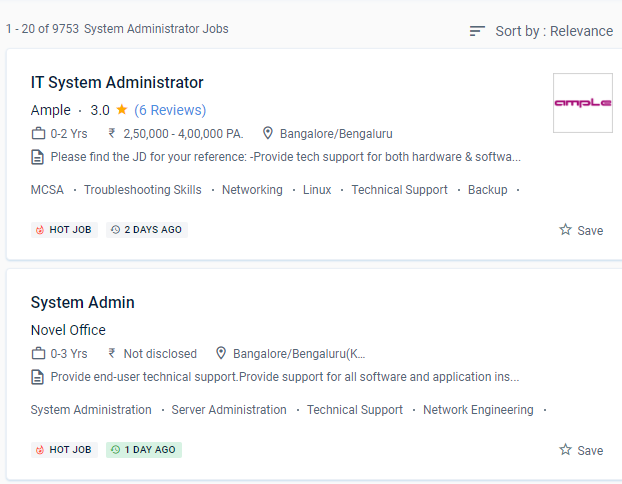System Administration Training by Experts
Our Training Process

System Administration - Syllabus, Fees & Duration
MODULE 1
- System administration introduction, policies, overview, UNIX history and basis
MODULE 2
- File systems and disks
MODULE 3
- Software installation concepts
MODULE 4
- Multi users basics, politics, policies and ethics
MODULE 5
- Automating administrative tasks
MODULE 6
- Networking
MODULE 7
- Backup and disaster recovery
MODULE 8
- DNS
MODULE 9
- SMTP, HTTP
MODULE 10
- Configuration management
MODULE 11
- Distributed computing
MODULE 12
- SNMP, monitoring
MODULE 13
- System security
This syllabus is not final and can be customized as per needs/updates





 Computer scientists research to develop new IT approaches that are both effective and efficient.
System administration roles are broad and often vary based on the type of computer system being managed, however, the majority of them have some fundamental functions that can be accomplished in a variety of ways.
To digitally connect clusters of computers, they create local area networks (LANs) and wide-area networks (WANs). Systems administration is the division of information technology that is in charge of keeping multi-user computer schemes up and running.
All of the important components of the corporate computing infrastructure are managed by system administrators.
They set up the network card (NIC) so that data can be sent and received appropriately.
They install computers, laptops, intranets, servers, cybersecurity software, and other technology. It is their responsibility to ensure that computer systems and related services work smoothly. Students who pursue a diploma in this field have a fantastic opportunity to expand their expertise. Circuit boards and CPUs are assembled by computer hardware engineers to produce functional mobile or desktop devices.
Computer scientists research to develop new IT approaches that are both effective and efficient.
System administration roles are broad and often vary based on the type of computer system being managed, however, the majority of them have some fundamental functions that can be accomplished in a variety of ways.
To digitally connect clusters of computers, they create local area networks (LANs) and wide-area networks (WANs). Systems administration is the division of information technology that is in charge of keeping multi-user computer schemes up and running.
All of the important components of the corporate computing infrastructure are managed by system administrators.
They set up the network card (NIC) so that data can be sent and received appropriately.
They install computers, laptops, intranets, servers, cybersecurity software, and other technology. It is their responsibility to ensure that computer systems and related services work smoothly. Students who pursue a diploma in this field have a fantastic opportunity to expand their expertise. Circuit boards and CPUs are assembled by computer hardware engineers to produce functional mobile or desktop devices.



















































































